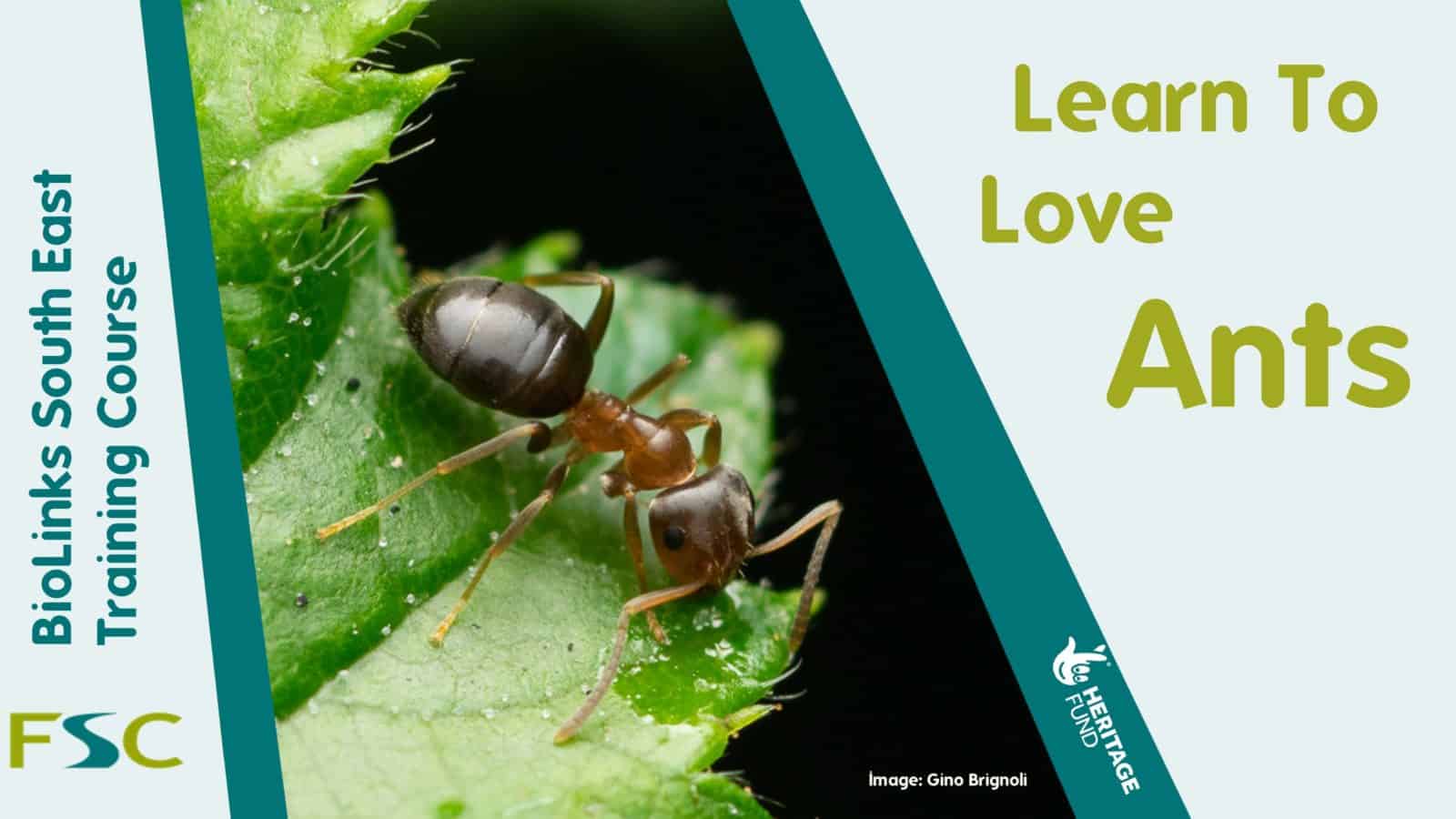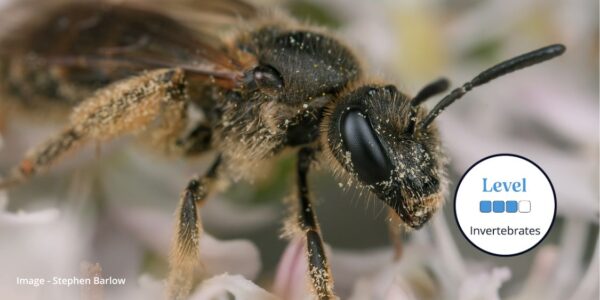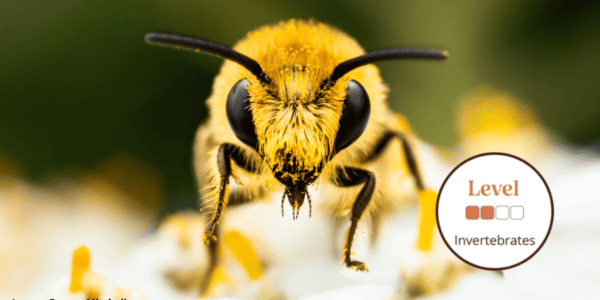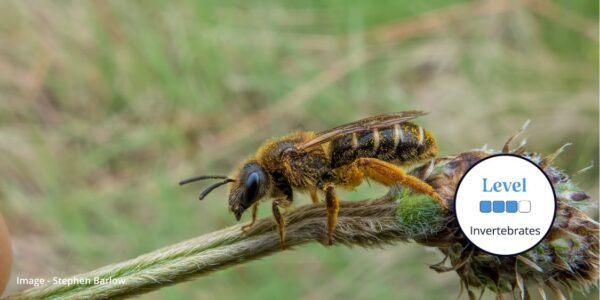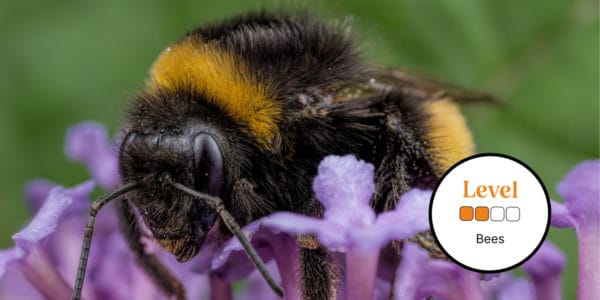Learn To Love Ants is an introduction to to one of our planet’s most numerous insect groups, introducing aspects of their biology, ecology and behaviour. Important ecosystem engineers and highly successful social insects, ants can be found almost anywhere and they display a host of different behaviours depending on species, habitat, or caste (whether they’re queens, workers or soldiers). On this course, you will learn all about their hidden empires and their fascinating secret lives.
This course combines the use of classroom-led learning and outside learning opportunities led by one of our ants tutors to give individuals the skills and confidence to learn more about the lives and ecological roles of ants.
- Certificate upon course completion.
- Please email [email protected] if you have any questions.
- Please note that this course is NOT a species identification course and will only go as far as categorising ants into subfamilies.
This course is aimed at adults only and course attendees must be at least 18 years old in order to attend.
What will be covered during this course?
-
- An introduction to ant biology, including their anatomy and morphology.
- An overview of the species diversity of ants in the UK
- The ecological roles of different groups of ants.
- How to go about finding ants in different habitats.
See the ‘Example Timetable’, ‘What’s Included’ and ‘Before You Attend’ sections below for more information about this course.
Course Fees
Regular Price: £75 For professionals and residents outside of the UK. Select ‘Attendee: In Person’ Sold Out
Subsidised Price: £10 Subsidised by the FSC BioLinks project for non-professionals eg. volunteers, biological recorders, wildlife gardeners, amateur naturalists and students.Available to UK residents only. Select ‘Attendee Subsidised: In Person’
Tutor: Gino Brignoli
Gino is an active invertebrate recorder in London’s green spaces, with a particular interest in the ecologies of urban insects.
He has worked as a freelance field surveyor on behalf of the Forestry Commission; researched ant ecology and evolution, and taught entomology field techniques whilst employed as a Research Assistant at Queen Mary University of London. With a keen interest in ecology and entomology, Gino studied an MSc in Ecology and Evolution from Queen Mary and a BSc in Biodiversity and Conservation from Birkbeck College, University of London.
He has also previously volunteered with the Lepidoptera department and Soil Biodiversity Group at the Natural History Museum, and on the Thorn to Orchid and Water for Wildlife projects with the London Wildlife Trust. He now coordinates the BioLinks courses in London.
Covid Measures
In order to keep our customers and staff safe, we ask that anyone attending our centres:
- Wears a face covering when in shared indoor space (unless exempt).
- Maintains social distancing.
- Cleans their hands regularly.
- Takes a Covid-19 test before they arrive.
Book with Confidence
We understand the difficulties of making plans in the current situation when guidelines continue to change, and insurance conditions are being tightened. In response, we will continue to offer additional flexibility. Find out more here
Example Timetable
- Please arrive in time for the course to start promptly at 10:00 am.
- Refreshments will be available from 9.45 am.
- The course will end at 4:00 pm.
What's Included
- 6 hours of tuition
- Certificate of attendance
- Any excursions will be on foot
Bursaries and Subsidies
FSC BioLinks
FSC BioLinks is an exciting project for FSC in the South East and West Midlands, bringing together existing volunteers with skills in biological recording and identification, and new volunteers.
This project provides subsidised training courses, learning opportunities and digital tools focussed on invertebrate identification for anyone involved or interested in biological recording, to build and strengthen the community.
Invertebrates provide us with many useful ecosystem services, like pollination and decomposition, which we cannot survive without but their numbers are declining. Few people know how to identify or record invertebrates meaning there is a lack of data
We are delighted to have been awarded a grant of £1.23 million from the National Lottery Heritage Fund for this project.
Before You Attend
Getting to Perivale Wood
Sunley Gardens, Perivale, Greenford, UB6 7PE
The entrance to the reserve is from Sunley Gardens in Perivale – a short walk northwards from Perivale London Underground (Central Line) station.
The nearest bus stop is for the 297, and the E5 and 95 both stop on Teignmouth Gardens, a short walk away.
Car parking is available in the surrounding streets with restrictions between 10-11am and 2- 3pm on weekdays. There are car parks on both sides of the tube station – one takes coins, the other only takes payments by mobile phone.
What to bring
- Notebook and pencil
- Lunch
- Hand lens (if you have one)
- Pooter (if you have one)
Due to the outside nature of part of this course, participants are advised to bring suitable clothing and footwear in order to access the nature reserve in various weather conditions.
This BioLinks course has aspects that will be taught outdoors with walking to field sites over uneven ground. No special preparation is required providing you are used to gentle exercise. If you have any concerns or questions about access or the activities involved, please get in touch.
There will be a member of staff with first aid training and access to a first aid kit on site. If you have special medical requirements please let us know as soon as possible so we can plan the course.
Sorry this course has ended

